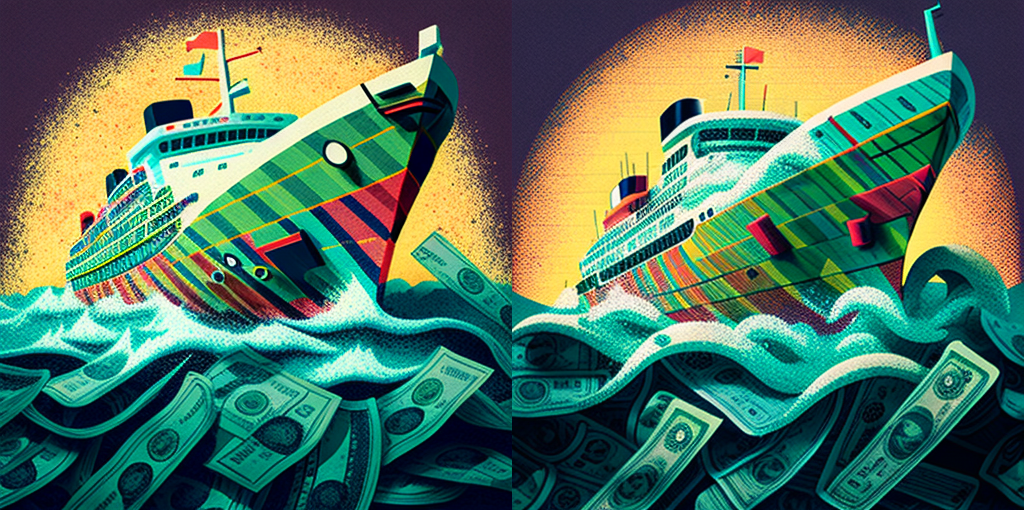To say that tourism can be a powerful force for good is a statement as blunt, blatant and truthful as the fact that, as a whole, the industry currently falls far short of fulfilling that positive role.
When implemented responsibly and ethically, tourism helps to add value to, and thus protect, our natural places, and the biodiversity within it. A 2016 study by the National Geographic Society’s Pristine Seas project, for example, found that marine-based tourism in the Galápagos brought in over $178 million per year, and supported more than a third of all jobs on the islands. Each shark in the Galápagos was given an estimated worth of $5.4 million over its lifetime as a result - a stark contrast to the $200 a dead shark would be worth to a fishermen.
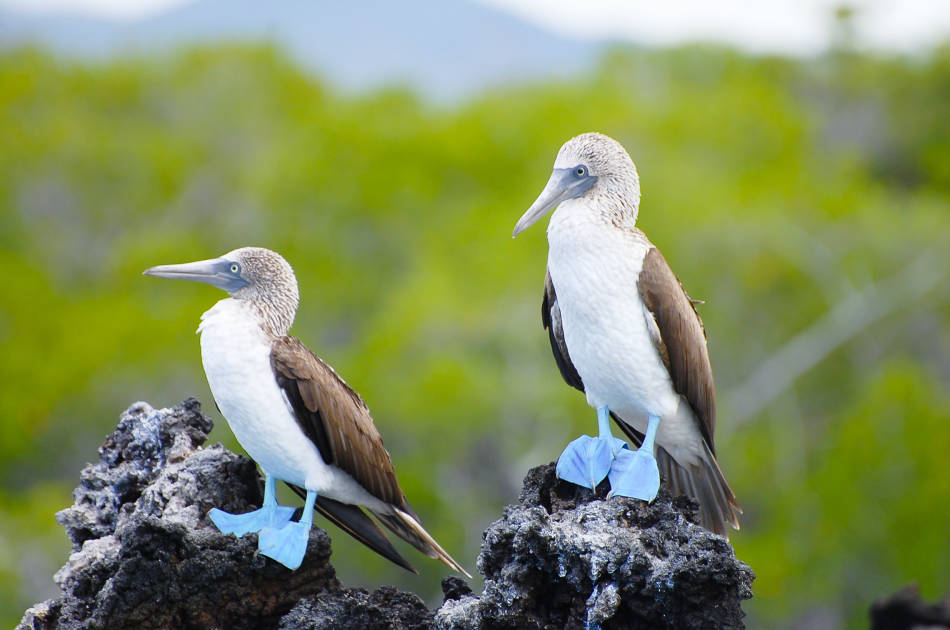
Forests have a habit of going unchopped and rivers undammed when there are circular, green economies that exist around them, and these tourism networks also bring jobs and funding (for infrastructure, conservation and training programmes) into rural communities where such opportunities, and the chance to diversify away from farming or fishing, have historically been scarce.
Locals who would otherwise be forced to leave their homes and migrate to find work are given the option to stay, and cultures can be preserved as a result.
The only problem is that for these positive impacts to be felt, the money from tourism needs to actually reach local people and circulate in these destinations - and unfortunately, this happens a whole lot less than you might think.
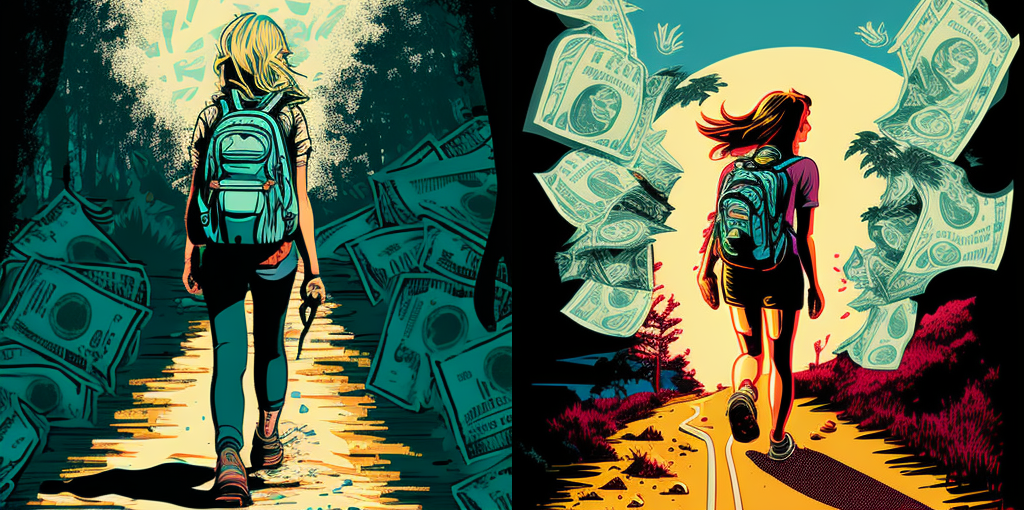
‘Tourism Leakage’ is not a term often heard in coffee shop discussions about sustainable travel, but it is a common topic of research in travel academia, and alongside the carbon impact of travel, it is perhaps the single biggest issue in the tourism industry today. The phrase is used to describe the money that is spent by a tourist in any given destination which, rather than staying in and spreading through the destination where the money is spent, leaks out to other economies.
In 2019, the last full pre-pandemic year of travel, the global tourism sector was responsible for employing over 333 million people (providing one in 10 jobs globally) and contributed a staggering $9,630 billion to global GDP. That’s a big old number - and a big problem if it’s not reaching the people on the ground.
The approximate levels of tourism leakage are "up to 40% in India, 70% in Thailand and 80% in Caribbean countries...
A 2014 report from UNWTO cites UNEP stats which state that the approximate levels of tourism leakage are "up to 40% in India, 70% in Thailand and 80% in Caribbean countries due to factors such as foreign-owned operators, airlines, hotels and imported food and products."
Now, the suggestion here is not that any one country should be able to secure 100% of their value chain, something unlikely in any industry, but that there is an array of unnecessary leakages in tourism, many of which are easily avoided.
Dr. Lynn Minnaert is Professor and Head of Subject, Tourism and Languages at Edinburgh Napier University. Along with co-author Clare Inkson, she (quite literally) wrote the book on Tourism Management.
“Leakage is basically any money that is spent at the destination level that doesn't stay there, and doesn't circulate within the destination. It leaks out,” says Dr. Minnaert. “Only a fraction of money spent by tourists stays with local communities - so often, the people who provide your service, and who welcome you into their home, are not actually benefiting much from your being there.”
An unequal problem
Picture this. You fly to the Maldives with British Airways. That money goes back to the UK. You then stay in an American-owned resort, the side-businesses of which sort out your SCUBA trips, whale-watching safaris and rent you a bicycle. You're served Australian wine, Indonesian tuna and Costa Rican bananas by seasonal, international staff. So who benefits from your money?
You might feel like your spending is benefiting local life, but the money could be working a whole lot harder for that host community.
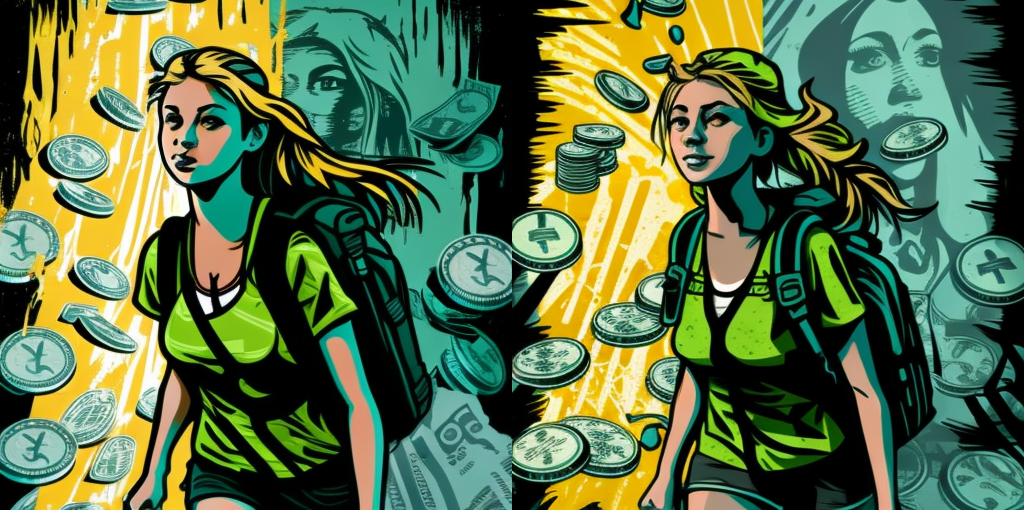
Tourism leakage tends to be worst in the global south, where locals didn't have the spending power to set up their own tourism infrastructure before global capital arrived. Local businesses can then set up shop when the tourist infrastructure is in place, but they often struggle to compete with corporate giants, who have a tendency to set up supply chains that favour the profitable and recognised, excluding the local - think Egyptian cotton sheets, Norwegian salmon, Coca-Cola.
Leakage isn’t just widespread in tourism; it’s very much the norm.
“It’s incredibly common in tourism,” says Dr. Minnaert. “Leakage happens everywhere. It doesn’t just have to be an island. It happens in Europe as well. The money doesn’t always go where you think. If your businesses are locally owned, then leakages are a lot less, because the money circulates within the community, but in a lot of destinations in the Mediterranean and the Caribbean - it's often foreign-owned businesses, from the tours to the hotels to the taxis.”
In 2012, while writing about tourism’s potential for poverty-reduction, Dr. Dorothea Meyer discussed how those who decided the supply chain also decided the “barriers of entry, the measurement of income and profitability, locality dimensions of the tourism value chain distribution, the make-up of recipients by class, gender, ethnicity” and which small, medium or micro-businesses are integrated into it. In essence, they decide the cast and what role they play.
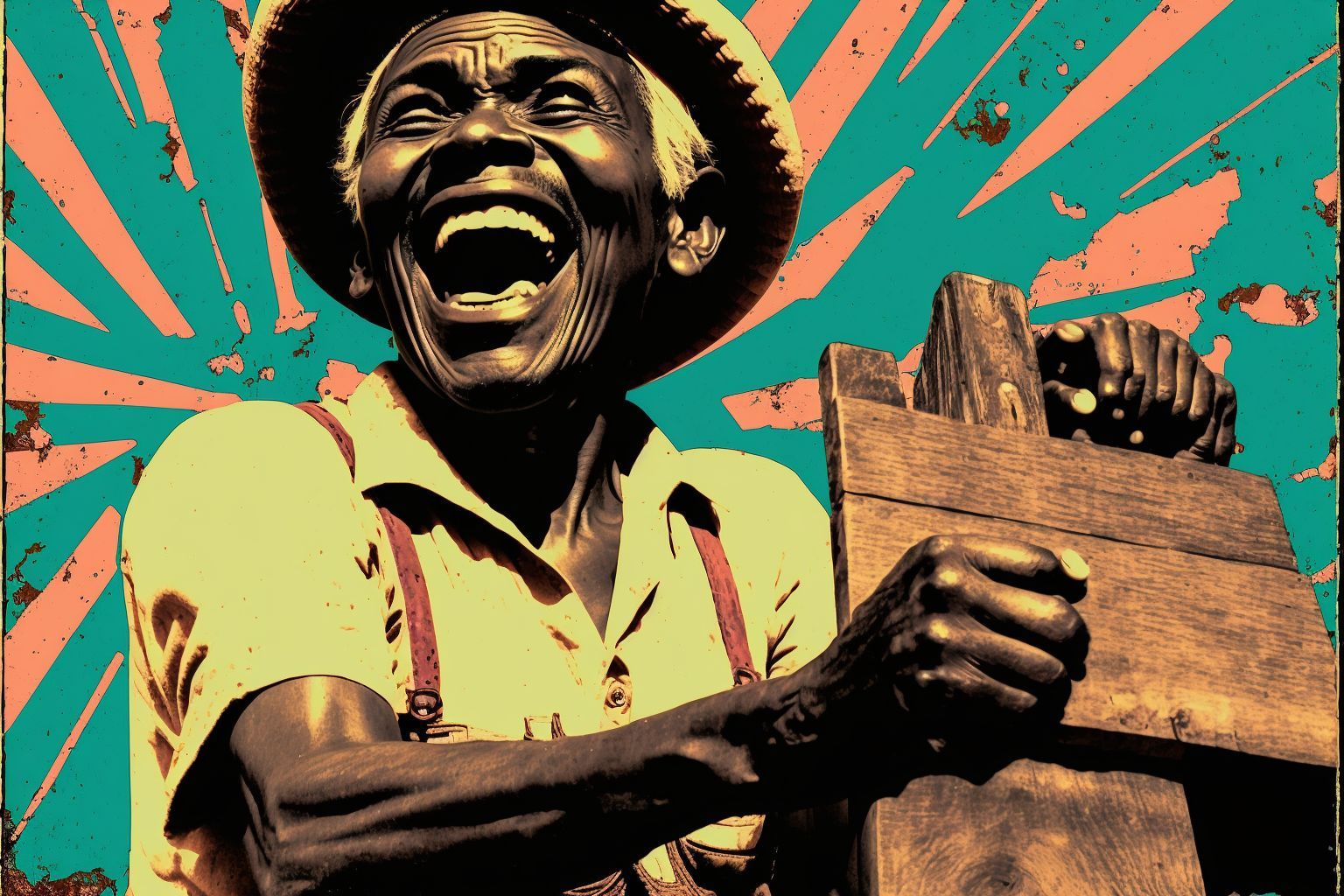
In 2022, Elcia Grandcourt, Director of the UNWTO Regional Department for Africa, outlined the issue. While talking about how tourism has the biggest potential to improve livelihoods in the least-developed countries, she lamented the fact that these countries faced the biggest difficulties in getting started. “Among the reasons for this,” she said, “are large-scale transfer of tourism revenues out of the host country and exclusion of local businesses and products.
“There is growing evidence that most of the tourism receipts in developing countries have no impact on local economies because they are spent on imports or earned by foreign workers [...] Leakages in tourism deeply affect African countries’ economies across the continent, with severe and negative impacts on local communities’ livelihoods, by fostering inequalities and producing cultural erosion.”
When exclusionary supply chains are established by external companies, it becomes harder for local entrepreneurs to access tourists, and so, harder for their companies to succeed. This means it’s tougher for locals to attain higher-paid positions in the tourism industry, which can limit locals to service jobs with, as Jeyacheya and Hampton wrote in 2020, “precarious work conditions and low pay [which] may limit opportunities for poverty alleviation.”
The UNWTO estimates that four to ten family members benefit from each tourist wage.
This sort of entry-level tourism work is also vulnerable to external shocks, as was demonstrated by the pandemic. If tourist money leaves for another economy when tourism stops, who supports those workers? And with what cash?
When money is retained and circulated in a community, destinations are able to diversify and so better prepare for external shocks. Caroline Ashley’s research found that in Namibia, for example, “new skills gained from being employed in tourism could be transferred to other livelihood activities, that earnings from tourism were being invested in livestock and/or the development of SMMEs, and that tourism contributed greatly to non-financial benefits be it access to infrastructure (e.g. roads, telecommunication, water) or access to information.”
Support networks and resilience will always be stronger in areas where money is retained, and circulates in an economy. The benefits from tourism don’t stop with the employee. The UNWTO estimates that four to ten family members benefit from each tourist wage on average - before factoring in wages spent on local goods. The less gatekeeping of tourists, the higher that number rises.
“The worst culprits to me would be cruise tourism and all-inclusive resorts, because they keep you trapped in a sense,” says Dr. Minnaert. “Because you spend your money with them, and any interaction you have with the outside destination is carefully moderated through them. They organise the excursions, carefully moderate everything for you - and take a big cut in doing so.

“In cruise tourism, your food is on the ship, you’re sleeping on the ship, so you’re only buying maybe a coffee and a souvenir - and in return, for that minor spending, the destination for six hours has thousands of people and a lot of pressure on it. The cruise fees that the destinations get doesn’t really make up for that. You’re causing a lot of hassle, unfortunately, for relatively little gain - but it is definitely possible to visit island nations and reduce your leakage.”
Linkages minimise Leakages
Imports aren't all evil. They can be essential to provide certain goods for tourism which you can't get in a destination, and they can also open up links to other economies, creating trade partnerships. But big chances are being missed.
Meyer wrote that “livelihood diversification via intersectoral linkages between tourism and agriculture offer tremendous opportunities that are frequently not tapped into - they not only provide income to local farmers but they can also considerably cut the import costs for tourism businesses, while providing a more authentic experience.”
Indeed, the more local goods used, the more authentic the traveller experience - and the traveller of today values authenticity above almost all else.
The key to minimising leakages is creating linkages with the local community. This can be as simple as encouraging hotels to train and employ local residents and serve local, seasonal food from local suppliers, rather than importing food.
Backwards linkages connect tourism businesses to suppliers. Forward linkages connect them with businesses in other sectors in the community, enabling them to grow and make the tourist dollar go further as tourist volumes increase. Examples of this would be connecting with local guides, campsites, indigenous communities, handicraft sellers - or indeed, combining all into one itinerary.

As Inkson and Dr. Minnaert’s 2022 'Tourism Management' states: “In too many destinations, the economic benefits of tourism are allocated to a happy few, whereas a great number of local people have to bear the costs in terms of congestion, environmental and cultural degradation, or inflation.”
Linkages help to mend local relationships with tourism, and they also come with a collective power, which can hopefully give locals a louder voice and can extend to involvement in development (to avoid displacement), to wages and so on.
The overarching message is simple and familiar. It's simply 'shop local' and ‘shop seasonal’, as you travel.
We must strive for this community-based, regenerative tourism. Global leakage is murky and hard to measure, and the solutions in any given destination will always be location-specific, but the overarching message is simple and familiar. It's simply 'shop local' and ‘shop seasonal’, as you travel the world.
As consumers, we can put in the extra effort to choose local companies, or responsible tour operators, who link these small local businesses to consumers who may otherwise never find them, while ensuring fair payment.
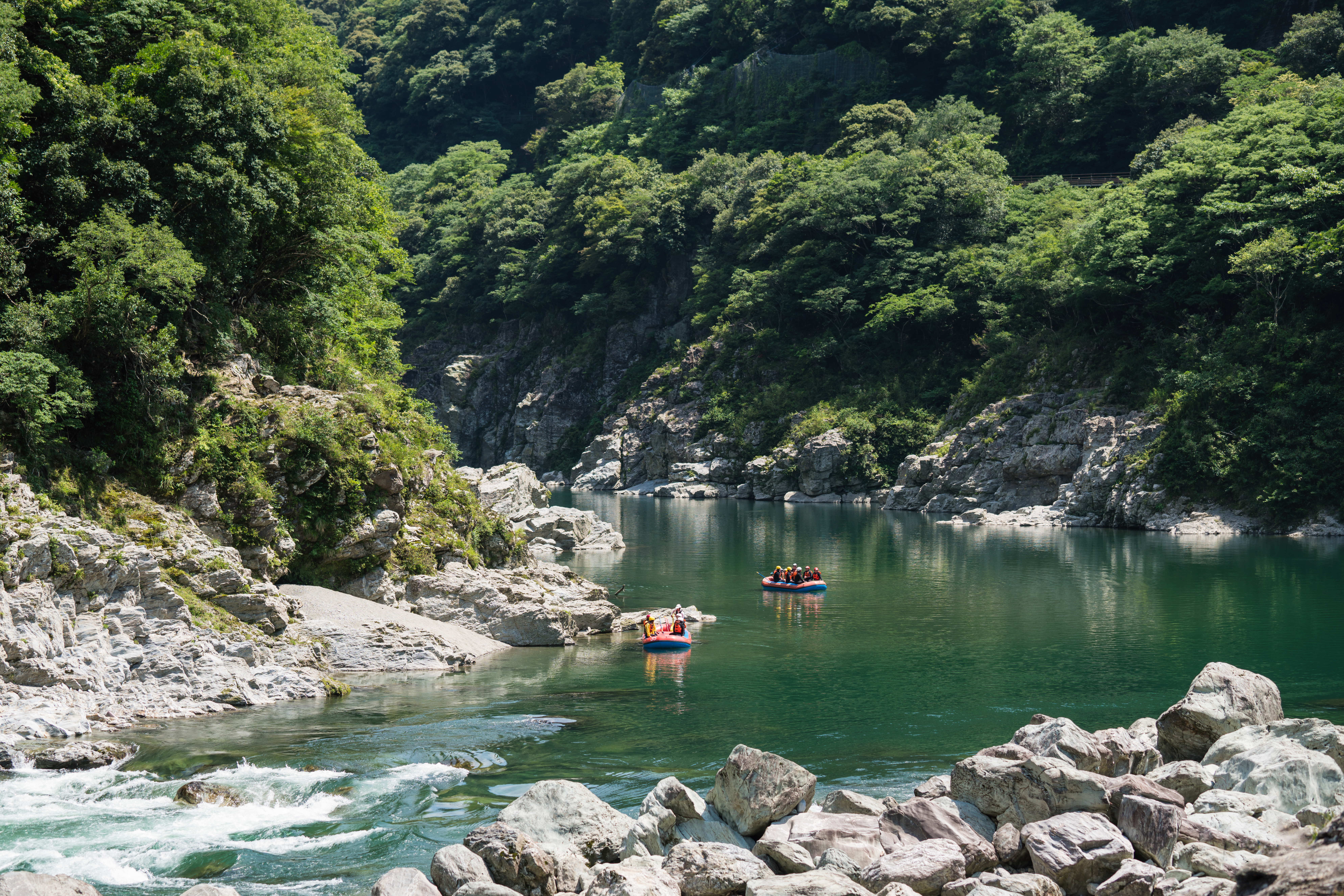
Long-distance hiking trails are excellent at taking visitors to rural areas and accommodation far from the tourist hot spots, wildlife-watching trips can be a crucial source of income for conservation projects, and multi-activity adventures are fantastic at getting an array of local businesses involved in one itinerary.
“If you’re a bigger tourism business, working with smaller businesses can be a challenge,” says Dr. Minnaert. “They may need to be paid more often, or have other specific needs, so it’s more complicated - but you have to make this special effort to put these linkages in place. You're almost training and capacity-building as you're working with them - particularly in developing countries. But the traveller wants this now, so more businesses are putting in that extra effort.”
Everyone's an Influencer
Ultimately, corporate change comes only with consumer demand. As more travellers demand vegetarian, or plastic-free options, these become available.
Similarly, as consumers demand proof that the money they spend is kept in the local communities they visit - that the food is sourced locally, the staff paid properly and that a fair cut of profits goes to the people on the ground, this will begin to happen. There are sections of the travel industry - notably within adventure travel - where it happens already. The travel industry is not a democracy, but vote with your money and change will soon follow.
“As long as people want this, it encourages companies to put in the extra effort,” says Dr. Minnaert. “That’s it. Just like with environmental sustainability.”

When we talk about sustainable travel, it is useful to think about what this phrase implies. Are we really going to set our goals so low as to strive for tourism which can simply be 'sustained', settling for a certain level of overcrowding and a model which leaves corporate powers counting their money while locals see minimal benefit? Perhaps a better question is, who is this model actually sustainable for?
Tourism is rightly viewed at a local, national and global level as a route to growth in developing countries - and included in the Poverty Reduction Strategy Papers of more than 80% of low income countries. It’s often one of the only viable sources of growth, but this growth is only possible if the money is retained and distributed around these countries - which needs to happen on a bigger scale.
Overseas travel is always a privilege, but for economies around the world; for rural livelihoods and for crucial conservation projects, it is also an economic necessity. If we ignore this for our own convenience, travel transforms from a privilege to a self-indulgence - hurting these global cultures and communities around the world which make travel so rich, when it could be benefiting them.
Sustainable travel cannot simply mean arriving at a destination by train, bringing a bamboo toothbrush and drinking out of a keep cup when you get there. It must mean regenerative - actively benefiting the people who live in these cities and the wild places that we visit, and who make these destinations so special, from the volcanoes of Guatemala to the hills of Romania to the waters of the Maldives.
The Tourism Leakage Series will run monthly during 2023 on our magazine, and will feature case studies focused on making tourism work - for good.

